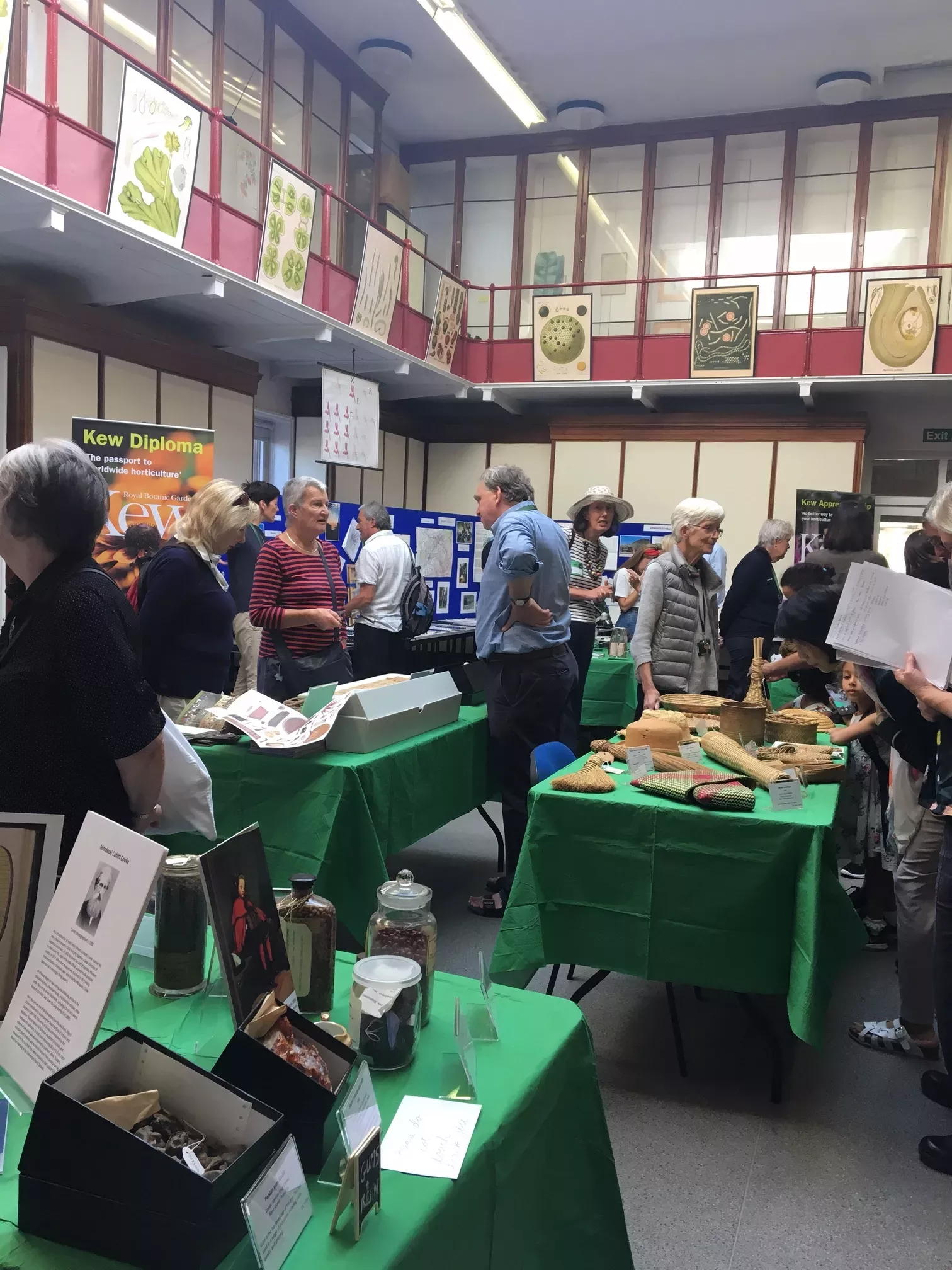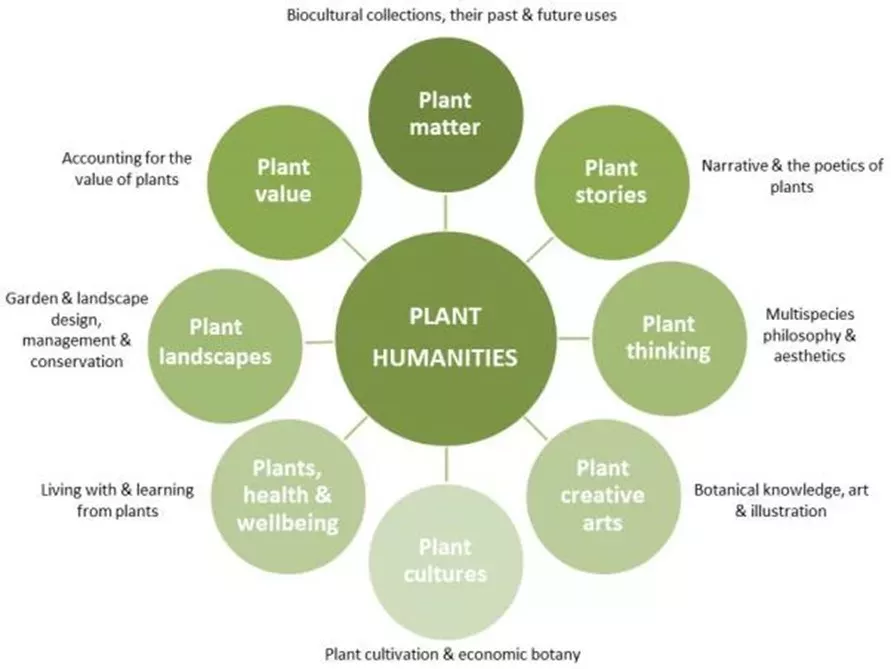1 December 2022
Plant Humanities report published - learning about people and plants
A landmark report sets the agenda for the newly evolving field of Plant Humanities

Researchers in the humanities have many ways of looking at the world, for example through the lens of art, history, literature, drama, and music. At first these approaches might seem remote from Kew’s role as a leading institute for scientific research, but they are increasingly seen as central to delivering our mission.
They are essential whether investigating the history of our extraordinary collections or disentangling the complex relations between people and plants in contemporary life, or for inspiring our visitors. All these tasks benefit from combining the methods of science with those of the humanities.

Kew’s new Science Strategy for 2021-25, released last year, recognised this, and led to the formation of a new team for Interdisciplinary Research, in which we sit. Similar initiatives are underway at sister institutions around the world, including Dumbarton Oaks and New York Botanical Garden in the United States.
Much of our day-to-day work is around building partnerships with universities and other places that can contribute new skill sets to joint projects.
During the Covid year of 2021 the Arts & Humanities Research Council commissioned us to investigate the future of what are now called the Plant Humanities. Collaborating with Professor Felix Driver, of Royal Holloway, University of London, we conducted 63 interviews with key players in the field and organised three workshops.
Talking to such creative people worldwide was a welcome distraction during periods of Covid lockdown.
We were able to identify eight priority areas for future research, such as connecting biodiversity, equity, social justice, and valuing green spaces for human well-being. We identified barriers to interdisciplinary work, for example in the language used in different disciplines, and have been able to propose a range of solutions.
We also found that botanical gardens such as Kew and Wakehurst are the ideal base for this kind of work – and indeed we are already involved in such projects.

We're excited to share the news that UKRI has just published our report. We hope that it will be instrumental in inspiring humanities research in botanical gardens and institutions around the world.
Useful links
